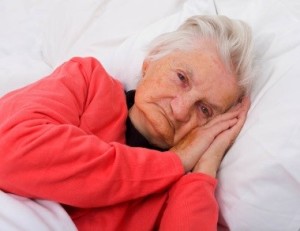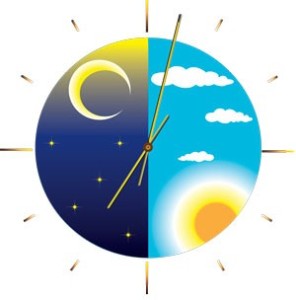
06 Jul Sleep and Dementia
According to the 2013 World Alzheimer Report, there are currently 36 million people with dementia worldwide. This number is projected to exceed 60 million by 2032, and 115 million by 2050[1]. Sleep disturbances are common in patients with dementia, affecting 25% to 80% of patients depending on the dementia subtype[2]. Symptoms include memory loss, trouble communicating, confusion and difficulty walking. According to the Sleep Health foundation[3] organization people with dementia could have issues with their sleep patterns. They are often sleepy during the day and have difficulty with sleeping for long periods at night. They may have less deep, restful sleep and/or lighter sleep. This could be due to dementia directly or due to changes in how they perceive the world. Some forms of dementia can disrupt the Body Clock.
 Practical knowledge is necessary in the identification of how to assess the patient with regard to evaluating if their problems are with sleep at night, sleepiness during the day, or agitation episodes. Although there are specific types of sleep problems that occur more commonly in patients with dementia and in patients with particular types of dementia, it is still essential at the initial evaluation to address first the common basic factors that might also be affecting sleep disruption, sleepiness, or agitation. This is because patients with dementia are often vulnerable to these factors.
Practical knowledge is necessary in the identification of how to assess the patient with regard to evaluating if their problems are with sleep at night, sleepiness during the day, or agitation episodes. Although there are specific types of sleep problems that occur more commonly in patients with dementia and in patients with particular types of dementia, it is still essential at the initial evaluation to address first the common basic factors that might also be affecting sleep disruption, sleepiness, or agitation. This is because patients with dementia are often vulnerable to these factors.
Some treatments related to maintenance of good habits and relaxation treatments are crucial. For example, the use of music in order to relax before sleep and massages have been found to be helpful for some people. Keeping the same bed routine and sleep hygiene is also importat.
During the day it is important to stay active. In addition, exposure to bright light or sunlight controls Melatonin levels and sends the brain a message to be awake. Outdoor light in the morning and in the evening helps keep the Body Clock on a stable routine.
Elderley people need fluids but these should be reduced in the afternoon and evening. About 4 in 10 older people have naps. Short naps may be helpful if there is inadequate sleep at night. It is better if the naps are before lunch so the person is more tired when they go to bed.
During the night the sleep room should be dark and quiet at night. Often people with dementia wake up and think it is morning if there is light.
[1] World Health Organization and Alzheimer’s disease International Dementia: A Public Health Priority World Health Organization, Geneva (2012), pp. 92–93
[2] Bliwise DL, Mercaldo ND, Avidan AY, et al. Sleep disturbance in dementia with Lewy bodies and Alzheimer’s disease: a multicenter analysis. Dement Geriatr Cogn Disord 2011;31:239–46.
[3]SLEEP HEALTH FOUNDATION. Australia. Sleep and Dementia. Available on: http://www.sleephealthfoundation.org.au/pdfs/Dementia-and-Sleep.pdf.

